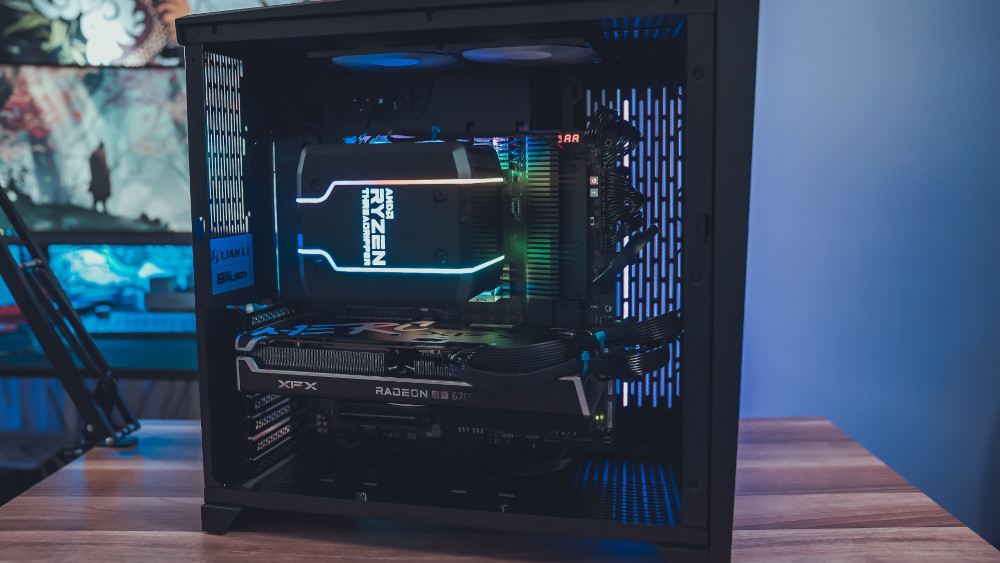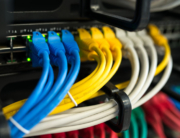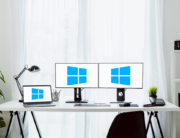Home / Handy Tips /

When you’re in the market for a new computer, you typically have two options: buying a pre-built PC or building your own from scratch. But which one is the right choice for you?
Let’s take a closer look at the pros and cons of each approach.
Buying a pre-built PC
Pre-built PCs are a popular choice for those who want a hassle-free way to buy a computer, as it offers the following conveniences:
- Easy setup: Pre-built PCs usually come with pre-installed software and apps, so you can use them immediately without needing technical knowledge.
- Affordable: Manufacturers buy parts in bulk, allowing them to offer discounts on pre-built PCs, making them cheaper than building your own.
- Instant delivery: Once you purchase a pre-built PC, you can use it immediately, whereas building your PC involves ordering and assembling parts separately.
- Warranty support: Getting support or repairs when needed is easy, as pre-built computers typically come with a warranty.
But while pre-built PCs can offer a convenient and affordable solution, it also has some downsides.
One of the most significant drawbacks is that manufacturers may use low-quality parts in some areas of the PC to save costs, which can result in a shorter lifespan for the computer.
Additionally, pre-built computers are limited in their configurations.
Since manufacturers produce computers in bulk with standard configurations, you can’t fully customise the PC beyond some component upgrades. This means that you might not be able to get the exact computer you want with all the features you need if you decide to go with a pre-built option.
Why build your PC?
Building your own PC might be the way to go if you want complete control over your computer’s configuration and performance and have some technical knowledge to back it up.
Here are some of the advantages of building your PC:
- Customisation: You can handpick every component giving you control over the quality and power of your computer. You can choose the RAM, CPU, case, power supply, and more to create a personalised PC that meets your specific needs.
- Longer-term cost savings: While the initial cost of building your PC may be higher, you can use the best components, giving the computer a longer lifespan and reducing the need for frequent repairs or replacements.
- Easy repairs: When a component fails, you can quickly identify and replace it since you know everything about the computer.
Building your PC can sound like a fun and rewarding experience, but ensure you’ve considered the following before deciding to take on the task.
- Your technical knowledge: Building a PC requires handling fragile components that you must assemble correctly. If this is your first time building a PC, you’ll have to invest hours into learning the technical knowledge required to produce high-quality computers.
- High risk of incompatibility: Double-check that all components you select are compatible before purchasing. This will help smooth the building process and ensure your new computer runs as intended without any unexpected issues.
Key PC components you need to know
Whether you’re purchasing a new computer or building one from scratch, the performance of your PC depends on a few key components.
Firstly, Random Access Memory (RAM) temporarily stores the currently used data. In other words, the more RAM you have, the more tasks your computer can handle smoothly and efficiently. Generally, 8GB is suitable for most users, but if you are a gamer or video editor, consider going for 16GB or more for optimal performance.
Secondly, the Central Processing Unit (CPU) clock speed determines the power of your computer, which means that a higher GHz number indicates a more powerful processor. Keep in mind though that higher GHz can also mean higher power consumption and heat production, so make sure your computer’s cooling system can handle it.
Thirdly, the storage size of your PC determines how many programs, files, and media it can hold. consider getting a hard drive or solid-state drive with a capacity that meets your needs. It’s better to have more storage than you need to avoid running out of space and slowing down your computer.
Lastly, the Graphics Processing Unit (GPU) power is responsible for your graphics card’s VRAM (video RAM) performance. A higher VRAM number is always preferred, as it means your computer will be more powerful and efficient.
Whether you’re a gamer, graphic designer, or just looking for a faster computer experience, remember these key components when buying or building your next PC.
Making the final decision
Ultimately, deciding to build or buy a PC depends on your preference. Both options have advantages and disadvantages, and you’ll likely need to repair, replace, or upgrade components in your computer at some point, so prepare for any eventualities.
Need Help with PC Repairs and Upgrades?
If you’re looking for fast and reliable PC repair, upgrades, and services for your custom computer or a specific PC brand, our team at Computer Cures is here to help. Give us a call today at 1300 553 166 , and we’ll work with you to find the best solution to meet your needs.








Leave A Comment